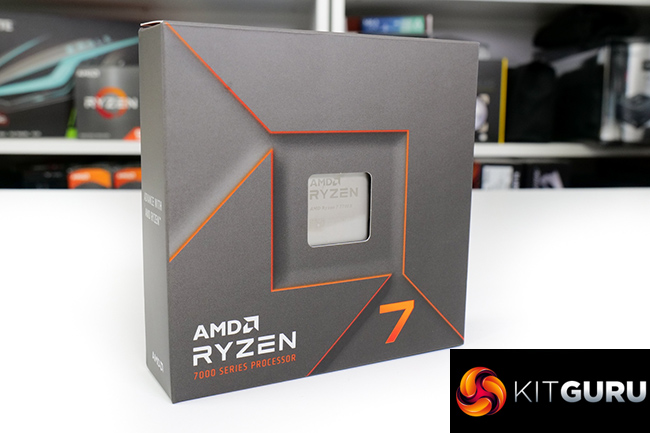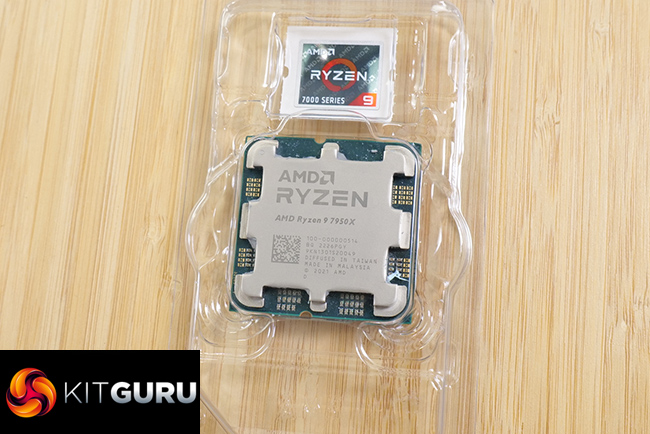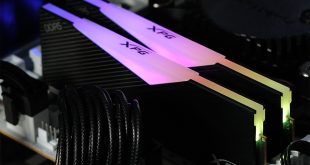I’ll start the conclusion by saying that I think there is a very reasonable debate to be had as to whether both of these processors should have been offered at a TDP step lower than they are. Personally, I appreciate AMD’s decisions to give us pedal-to-the-metal processors that use plenty of power in order to squeeze out every last drop of performance. Fundamentally, this is what Intel has been doing for many generations, albeit to a more extreme level with the most recent chips.
But there are definitely clear caveats to this approach when it comes to power efficiency and cooling challenges. In gaming – fine, go all-out with the processors. But for daily usage, I’d probably tune down the TDP a bit to have a quieter, more power efficient system.
That might sound like some negative feedback on the power and thermal performance of these chips, and I guess it somewhat is.
But it’s also incredibly positive feedback for the sheer performance scalability that AMD’s Zen architecture continues to offer. You can shed about a third of the power draw off the flagship 16-core chip and see Cinebench performance decrease by less than 10%. That’s highly impressive!
We can’t summarise Ryzen 7000 processors without also highlighting the new AM5 platform. Put simply, AM5 looks to be superb and will definitely take the fight to Intel’s LGA 1700 alternative.
AMD now offers users DDR5 memory compatibility, plenty of PCIe Gen 5 connectivity, and the most modern interfaces such as 20Gbps USB.
AM5 motherboards look to be very healthy indeed, but we’ll get into this more with individual reviews. Plus, we’re still waiting on the B650 chipset, as those motherboards could swing the value pendulum in favour of AMD. And the inclusion of integrated GPU connectivity on the new processors is another worthwhile point on the checklist for Ryzen 7000.
Focussing on the Ryzen 7 7700X, I have to say that I am less impressed with this chip than its 16-core sibling.
Firstly, AMD’s new Zen 4 8-core is a huge improvement versus the Zen 3 8-core chips it replaces in terms of productivity performance. But versus the realistic competition – the 12700K and 5900X – the 7700X certainly struggles to shine as it is often just behind matching the competitors rather than beating them.
Power efficiency is another area where the Ryzen 7 7700X doesn’t really excel versus the 12700K or 5900X. Unless you switch to a 65W TDP Eco mode, that is, which I guess you could also do on the previous-gen Ryzen 9.
Gaming performance is good from the Zen 4 Ryzen 7 and is far better than the 5900X. But that Core i7-12700K is a solid competitor for FPS numbers. And at this price point, the Ryzen 7 5800X3D is a contender that’s realistically tough to compete against for purely gaming usage.
So, yes, the Ryzen 7 7700X is a good addition to AMD’s product catalogue, but it will currently have a tough time in the market due to the price point of its primary competitors as well as the presence of the 5800X3D.
In general, I’d say that the Ryzen 9 7950X is a fantastic processor.
Users looking at buying a 16-core flagship are likely those who have actual productivity workloads that will benefit from having such performance on tap. And this is exactly where the 7950X delivers!
You get outstanding multi-threaded performance across the board. The high number of well-designed Zen 4 cores run at incredibly lofty frequencies to deliver remarkable performance gains in rendering applications or video conversion or file manipulation. And if you want to do gaming on the same system during your downtime, the 7950X is generally up there with the best gaming processors on the market.
The clear downsides are the chip’s power consumption and running temperatures. But the performance delivered somewhat warrants such high levels.
In the UK, AMD's Ryzen 9 7950X is £739.99 and the Ryzen 7 7700X is £419.99. These processors will be available from e-tailers such as Overclockers UK.
Discuss on our Facebook page HERE.
Ryzen 7 7700X
Pros:
- Strong gaming performance, particularly versus Zen 3
- Excellent performance efficiency when tuned to 65W TDP
- Competitive option versus the Core i7-12700K
- Outstanding single-threaded performance
- Lofty out-of-the-box frequencies
- Feature-rich AM5 platform and on-chip connectivity
Cons:
- High operating temperatures
- Power consumption could be better tuned
- Expensive setup including AM5 versus AM4
Ryzen 9 7950X
Pros:
- Outstanding computational performance
- Chart-topping single-threaded performance
- Excellent gaming frame rates
- Strong power efficiency, despite high consumption levels
- Remarkable performance in 105W TDP and 65W TDP Eco modes
- Feature-rich AM5 platform and on-chip connectivity
Cons:
- Very high thermals
- Slightly excessive power consumption
KitGuru says: AMD’s Ryzen 9 7950X offers outstanding multi-threaded, single-threaded, and gaming performance numbers. The lofty performance figures more than justify its high power consumption and aggressive thermals. AMD’s Ryzen 7 7700X is also a competitive option on the new AM5 platform, though it has tough alternatives to contend with – particularly Intel’s Core i7-12700K.
 KitGuru KitGuru.net – Tech News | Hardware News | Hardware Reviews | IOS | Mobile | Gaming | Graphics Cards
KitGuru KitGuru.net – Tech News | Hardware News | Hardware Reviews | IOS | Mobile | Gaming | Graphics Cards






